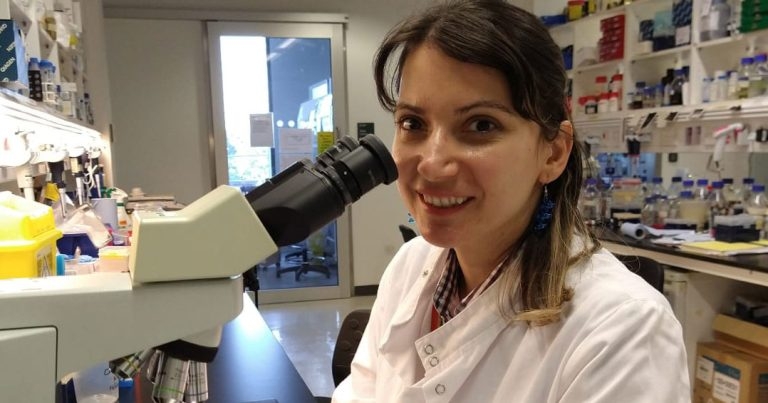23 May 2022
Cell analysis may reveal biological pathways and indicators underlying airway inflammation in racehorses.

Anna Eleonora Karagianni, research fellow at The University of Edinburgh Royal (Dick) School of Veterinary Studies.
Researchers will investigate why racehorses are susceptible to respiratory illnesses during intense training.
The findings could inform ways to help alleviate inflammation in the airways, which commonly affect the animals, impacting on their performance.
A team from The Royal (Dick) School of Veterinary Studies and The Roslin Institute will use a combination of analysis techniques to study immune cells from horses’ airways and lungs.
The study, funded by The Hong Kong Jockey Club Equine Welfare Research Foundation, will seek to identify biological indicators of disease and better understand processes in the immune system that lead to illness.
The two-year study aims to build on previous research funded by the Horserace Betting Levy Board that highlighted a link between exercise and changes in immunity, with the latest work focusing on immune cells that originate in horses’ airways.
Scientists hope to aid understanding of conditions affecting the airways, including inflammation, known as mild to moderate equine asthma, which can significantly impair athletic performance – especially during the early training period.
The research is also hoped to shed light on bleeding into the airways, known as exercise-induced pulmonary haemorrhage, which is also prevalent among training horses.
The team will seek to establish whether a link between the two conditions exists.
Researchers will seek to pinpoint the effects of training on activity in immune cells, and the proteins produced by these cells, to search for biological indicators of susceptibility to disease and possible targets for treatments.
High-intensity training has also been linked to respiratory symptoms in humans, with intense periods of exercise being linked to a loss of immune function, and outcomes from the study could also have significance for advancing the understanding of this phenomenon in human athletes.
Anna Eleonora Karagianni, research fellow at The Royal (Dick) School of Veterinary Studies, said: “Previous studies have reported a detrimental effect of exercise on the functional capacity of airway-derived immune cells.
“We hope to establish the detail of this, inform management and training of equine athletes, and advance understanding of similar conditions in humans.”